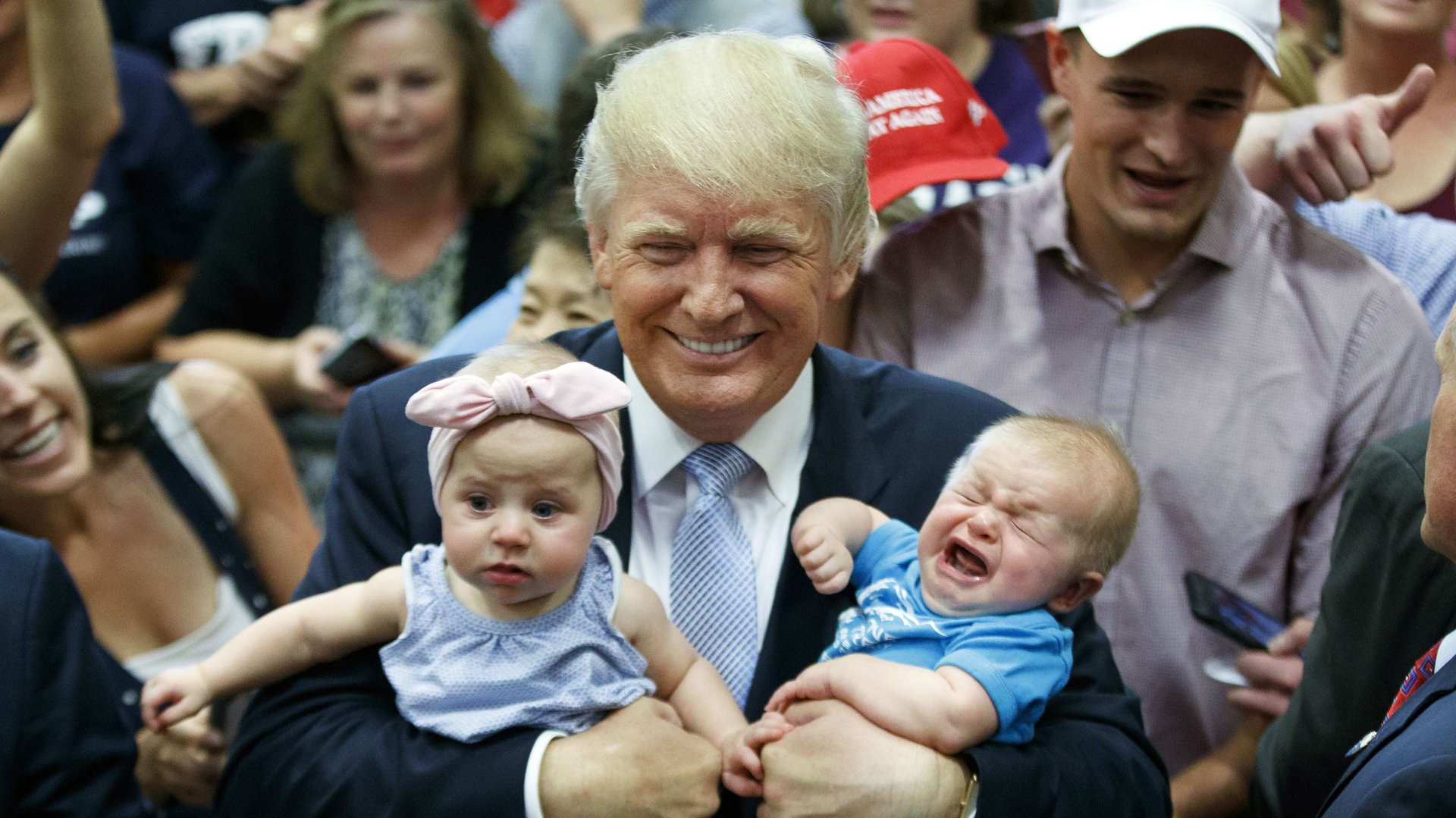Presidential debate: How to protect children from “election stress disorder”
The rhetoric and rancor of this election season has been nastier than any US presidential election in memory. So it’s no wonder the notion of ”election stress disorder” started floating around in April. It’s not an official diagnosis, but all the insults, name-calling, and doomsday predictions have undoubtedly caused anxiety for many Americans.


The rhetoric and rancor of this election season has been nastier than any US presidential election in memory. So it’s no wonder the notion of ”election stress disorder” started floating around in April. It’s not an official diagnosis, but all the insults, name-calling, and doomsday predictions have undoubtedly caused anxiety for many Americans.
Those tensions will come to a head tonight (Sept. 26) at 9pm, in the first of three debates between Democratic Hillary Clinton and Republican Donald Trump. The debate is expected to draw as many viewers as the Superbowl—but many parents are worrying that it won’t be as kid-friendly.
Apart from the late timing of the debate, which ends at 10:30pm on a school night, parents who allow their children to watch the debates are bracing themselves to explain away less than civilized behavior.
After the uncomfortable tiny hands debacle in the Republican primaries, the mother of a politically-minded sixth-grader in Texas told her son that the candidates “weren’t acting like adults.” Similarly, a California middle-school teacher told NPR that she found “more examples of what should not be done in debating than examples of what should be done” when using the debates as classroom material.
And even if your children don’t watch the debates, adults’ stress—about politics or anything else—may rub off on your kids. A 2015 study found (paywall) that children often pick up anxiety from their parents. Stress in kids manifests itself in all kinds of ways, including difficulty sleeping, bedwetting, and acting out. Even at 18 months, toddlers alter their playing when they recognize that an adult in the room is angry or hostile.
But there’s something to be said for allowing kids to be a part of the democratic process by watching the debates with you beside them. As Quartz’s Jenny Anderson writes, children deserve to know why a candidate like Donald Trump gets so many people riled up. Additionally, ”you have the opportunity to hear where they’re coming from,” Michele Borba, an educational psychologist and author of Unselfie: Why Empathetic Kids Succeed in Our All-About-Me World, said. Her advice for watching the debates, especially with teenaged children, is to “be aware and keep your mouth shut” so that you can hear them describe their own political views and values.
The National Children’s Book and Literacy Alliance issued a guide to watching the debate tonight with your children, as a way of encouraging them to think for themselves and develop their own views. “Refrain from voicing your own opinions concerning presidential candidates and issues before the debates” the guide suggests, and “ask your kids and teens if they think the debate moderators are respectful.”
And despite the high stakes, it’s still OK to have fun during the debate. Some adults are already planning their debate drinking games, but for kids, this debate bingo game template is a great way to diffuse the stress.